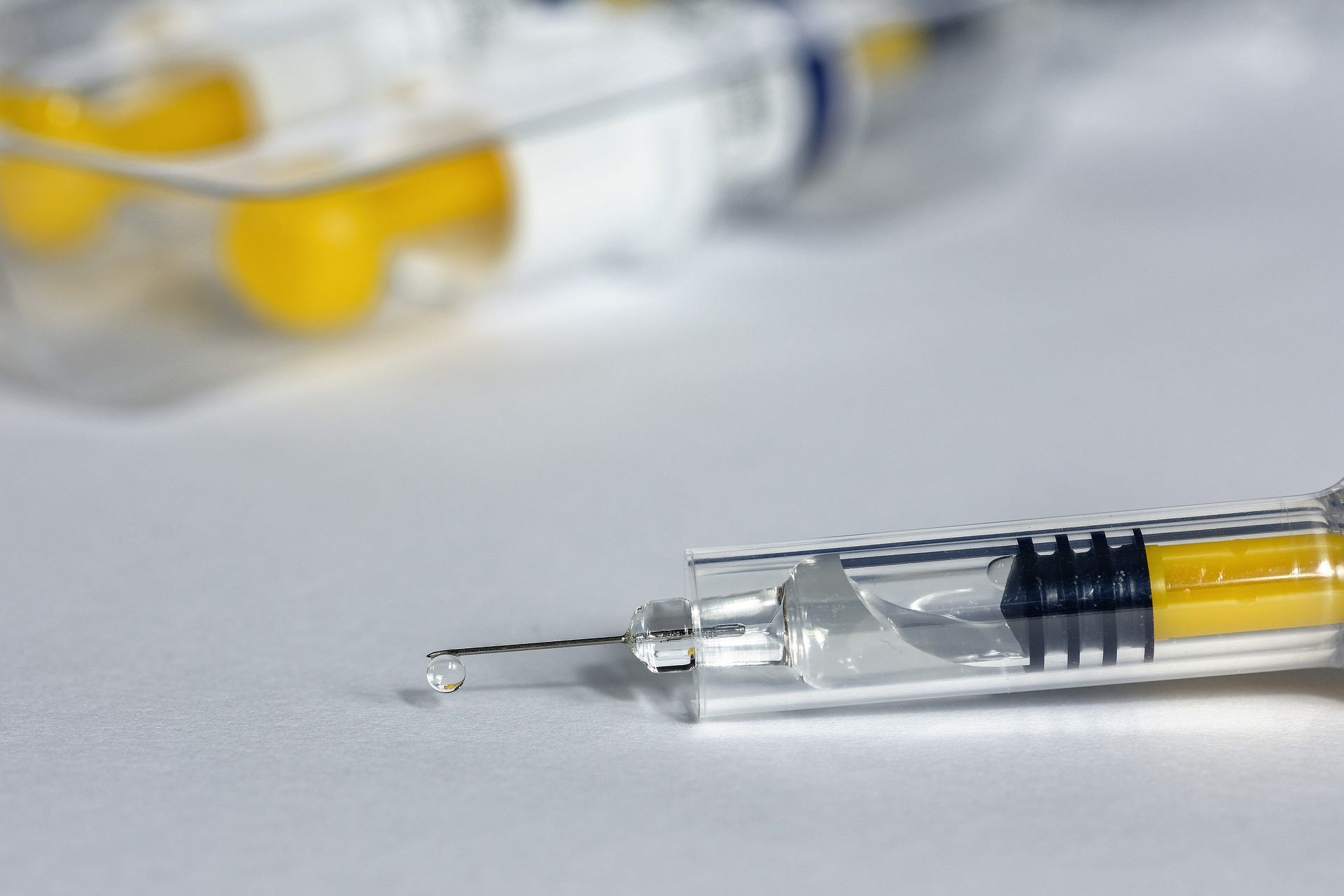Vaccine Developer, Psychologist Analyze COVID-19 Vaccination
 (Stock image courtesy: Pixabay)
(Stock image courtesy: Pixabay)
Subscriber Benefit
As a subscriber you can listen to articles at work, in the car, or while you work out. Subscribe NowIndiana has a unique legacy in vaccine development, testing and manufacturing that is giving Hoosier experts a powerful lens to examine the current atmosphere as the first COVID-19 vaccine inches closer to reality with each passing day. An Indiana University School of Medicine (IUSM) professor was one of the key developers of the HPV vaccine Gardasil. While that’s the only vaccine that’s been developed at the university, IUSM has played a critical role in testing vaccines and currently has a clinical trial underway for AstraZeneca’s COVID-19 vaccine.
In the business landscape many decades prior, Indianapolis-based Eli Lilly and Co. manufactured more than 200 million doses of the polio vaccine—more than half of the industry’s total—in the 1950s.
“Vaccination is the safest and most effective thing that we do as physicians. It’s more effective than any surgery or any medical treatments, and it’s safer,” says IUSM Professor of Microbiology and Immunology Dr. Darron Brown. “The safety testing that goes into vaccines far exceeds the safety testing for any other medical device or medication that you can name.”
Brown is one among a handful of researchers that created Gardasil, which the CDC now recommends for adolescent children and is produced by Merck. But he’s also familiar with what comes after vaccine development and where the country sits now: the challenge of vaccine acceptance (which was the topic of a recent Frameworx discussion). In fact, 2019 data shows Indiana is second to last in the U.S. for completion of the two to three-dose series for the HPV vaccine.
IUSM Professor of Pediatrics and Clinical Psychology Dr. Gregory D. Zimet is using his expertise in behavioral and social science to help uncover what factors could lead Americans to accept or refuse COVID-19 vaccines.
“One of biggest issues with COVID-19 vaccines is the widespread concern and decreasing confidence in the regulatory mechanisms,” says Zimet. “Unfortunately, I think there’s been a bit of a breakdown—a more than usual breakdown—in public trust in vaccine development.”
Zimet, who has conducted a national survey on COVID-19 vaccine acceptance and published multiple related papers, believes the speed of vaccine development and its politicization are the top concerns of the American public.
“For the most part, corners are not being cut. I think people need to know that. There’s been an unfortunate lack of clear communication; even naming the process ‘Operation Warp Speed’….I think was not a helpful labeling, because it makes it sound like speed was the only consideration,” says Zimet. “The clinical trials process is being carried out with full rigor. And according to how it has been carried out in the past, there’s been some effort to increase the speed by doing things in parallel, rather than sequentially. They’ve looked at ways to not cut corners, but speed things up, while not undermining safety.”
Zimet also notes, “because people are so desperate for this vaccine,” recruitment was much more rapid than typical. Pfizer enrolled 44,000 people in its COVID-19 Phase 3 clinical trial within about one month. Zimet says the prevalence of the coronavirus also speeds the clinical trial process.
“If you have an outcome that’s really common, clinical trials don’t take as long. If you have an outcome that’s fairly rare, it can take a long time,” says Zimet. “With HPV, one of the outcomes was cervical dysplasia; that’s going to take longer to demonstrate than, for instance, a SARS-CoV-2 infection.”
Brown is emphatic that developers and regulators are making safety “the number one factor.” The head of vaccine research and development at Pfizer spearheading its COVID-19 vaccine, Kathrin Jansen, was Brown’s close colleague at Merck when he was developing the HPV vaccine. He says she’s leading Pfizer’s vaccine effort “in a first-rate manner; they’re looking so carefully for any possible signal of any kind of reaction whatsoever.”
Zimet acknowledges there are still unknowns with the COVID-19 vaccines, such as the inability to study long-term potential negative effects. Because the HPV vaccine trials took years to complete, scientists had a significant post-vaccination window of time to look at longer-term potential negative effects.
“In this case of [COVID-19], there will be a couple of months of data after the trial themselves. These trials are well designed to figure out if there are any short-term negative effects of vaccination, but post-marketing surveillance is going to be very important to see if there are very rare, but problematic, side effects over the longer-term. The trials, in this case, can’t determine that,” says Zimet. “Some [people] are very distrustful [of a COVID-19 vaccine], and others think it’s going to answer all the problems. Even with a highly efficacious vaccine…it’s important to understand that vaccination is a behavior; it requires a behavior to accept it.”
Zimet says a COVID-19 vaccination will not be available for children for quite a while, as it will require a separate clinical trial process specifically focused on children.
Brown says “there are no corners being cut in terms of safety” for the clinical trials that are testing the leading COVID-19 vaccine candidates.
